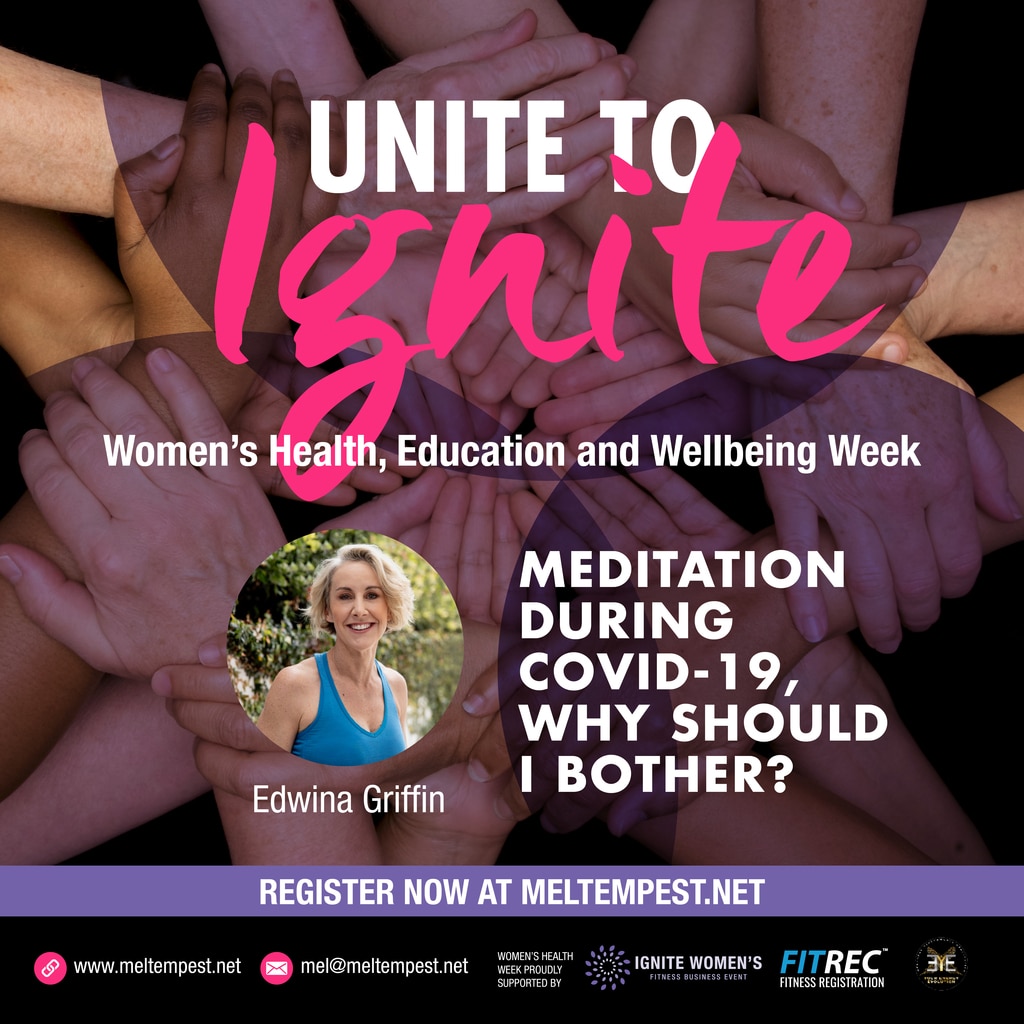Meditation during Covid-19, why should I bother?

COVID-19 has brought with it many challenges to everyone around the world and currently in Australia, the state of Victoria continues to be challenged with lockdown extended another month. The extra stress from financial burdens, social isolation, learning new procedures and protocols, the fear of the unknown, concern for loved ones all contributes to the fight or flight response in the body.
We know the fight or flight response reduces our ability for rational thinking and problem solving, negatively impacts digestion and sleep and increases adrenalin and Cortisol. None of these symptoms are helpful during these times when there are extra demands and decisions to be made. All the changes with Covid-19 such as home schooling, working from home, financial pressures and new protocols and procedures in all ways of life require a clarity of thought, motivation and energy that is not always easy when feeling stressed.
One of the tools that can help to reduce some of these negative symptoms both physically and mentally is meditation. Here are 6 of the benefits of meditation that may motivate you to give it a try to help you cope better in this crazy ‘new normal’ world.
- Research has shown that meditation and mindfulness strengthens the link between the emotional and rational thinking parts of our brain. This helps you to identify an emotion and then choose an appropriate action rather than having an unconscious, emotional reaction without any rational thought. This is surely only going to help you manage to choose better responses when your emotions are running high.
- Regular meditation and positive suggestion helps to re-programme our brain with more positive thoughts and emotions due to the repetition and neuroplasticity. Social contagion will help to spread this positivity through to other members of the family too!
- Focus on breathing and deep, diaphragmatic breaths in meditation stimulates the parasympathetic nervous system, reduces Cortisol ( stress hormone), reduces blood pressure and releases endorphins.
- Research has shown that meditation can help increase kindness to yourself and others, particularly when doing meditations around loving kindness and gratitude.
- Meditation has been show to improve your ability to focus for longer. If you can get your kids meditating with you, it can only help to support their study and home schooling.
- Meditation has been shown to improve sleep. The “monkey mind” thoughts that keep people awake at night are reduced from regular meditation and this may help to reduce insomnia when stressed.
- Meditation has been found to increase self-awareness and through increased self-awareness then we become more aware of others. This has the potential to contribute to more mindful communication and decisions and if everyone in the family meditates, this can translate to a more mindful household on many levels.
If you haven’t meditated before, take your time to discover a meditation practice that resonates for you. Meditation is simply focusing the mind on one thing and observing all that is without judgement.
It is my belief that there is no one path for discovering meditation and the most important thing is to find the approach that resonates with you and stick with it. I struggled with getting into a regular meditation practice when I first started until I found an approach that aligned with me. It also a great idea to start with small steps. In the same way that someone doesn’t go and run a marathon in their first fitness session, don’t aim to do a one hour meditation in your first week of meditating either. Perhaps you may start with 5 or 10 minutes of meditation a day or three times a week initially and then aim to make it more regular and allow the duration to lengthen gradually in your own time.
Don’t expect every meditation to take you into a bliss state either, just accept whatever is and emotions may feel good or uncomfortable but no emotion is any “better” than another, they all need to be felt equally for our human experience.
Be ready for the fact that being in this quiet space with yourself and becoming more aware of your emotions and thoughts may be uncomfortable at first. It’s important to have compassion for ourselves and allow and accept all emotions to exist and be felt without seeing them as positive or negative.
Some of the different types of meditation you may want to consider include:
- Breath
- Body scan
- Guided visualisation
- Mantra
- Chanting
- Sound healing
- Vipassana
- Transcendental
- Walking
- Mindfulness
Up until COVID-19, many of us filled every minute of our days “doing” as much as we possibly could, from our own full work schedules, gym routines and social lives to then filling our kids’ diaries to the max’ with extra sport, music and social events. It is difficult to see any positives from COVID-19, however if we were to find one, it may be that many people have re-evaluated and found the value in giving themselves and those they love more time in the day. Perhaps we have more time due to working from home or perhaps the extra stress has forced us to make the time so we can cope better.
Consider starting regular meditation as a positive amongst the chaos of Covid-19 and enjoy all the benefits it can bring.


